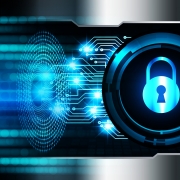How an Unhackable Email Service Protects Individuals against the State
In 2013, our concept of privacy was forever changed when Edward Snowden became a household name. Prior to the Snowden leaks, Americans were ignorant of the magnitude of data collecting that was occurring at the hands of their own government. Of course, The world had changed in the years following 9/11 as the war on terror was used to justify the institution of Patriot Act and agencies like the TSA. And while Fourth Amendment violations became rather routine for Americans, no one realized just how far the government had taken things.
But after Snowden boldly told the American people that our private emails and phone records were being routinely collected, regardless of wrongdoing or even suspicion, it was simply too much for the people to take. Individuals, it would seem, had lost the power struggle against an ever-growing government. But in the midst of this disappointing news, one man, Ladar Levison, stood up to the government and refused to turn over information regarding Snowden. And now, he’s helping to restore the balance of power between individual and state through an unhackable email service that keeps your private information out of the hands of the government.
Levison Shrugged
Prior to the leaks, Levison had created an encrypted email service called Lavabit. Snowden was a user of this service, which led to the government coming to call on Levison, demanding that he turn over all of Snowden’s correspondence. And while he was opposed to this on moral grounds, there was a bigger problem at hand. In order to hand the government all of the data on Snowden, he would also have to hand over the data if each and every one of Lavabit’s users, which accounted for over half a million people.
Levison strongly believed that his role as a service provider was to honor the privacy of his users. And the US government was asking him to violate this belief. But rather than comply with their wishes, Levison decided to follow his conscience, even if that meant losing his company. He destroyed all the servers to protect his users.
And while it is not ideal to have to destroy everything he had built, it was the right thing to do.
Privacy has always been important to Levison, in fact, it is what led him to create Lavabit, to begin with. When Google announced the launch of Gmail in 2004, he began to be worried that the company might eventually be forced to turn over the records of their users. And his concerns were justified. The Patriot Act have the FBI the authority to demand that email providers turn over the data of their users without having to go to a judge and obtain a warrant. This was possible through something called national security letters.
To make matters worse, if any service provider attempted to alert a user when a national security letter had been issued, it would be a violation of the National Espionage Act, a serious crime. This essentially tied the hands of service providers like Levison.
But this conundrum created an opportunity for creative problem-solving.
Levison said:
“When I realized there was a very realistic probability that I could find myself choosing to go to jail rather than violate the constitution, I put on my engineering cap and tried to create a solution that would remove the service provider from the surveillance equation.”
And that solution was rooted in encrypted technology.
Levison continued:
“And that solution was the asymmetrically encrypted storage system that became the issue of the highly publicized [Snowden] case 10 years later.”
Asymmetrical encrypted might sound complicated, but for anyone who has used bitcoin, it is similar to the public and private keys of the blockchain. As Levison explains it:
“Asymmetric encryption is a way of describing algorithms in which you have a public key and a private key. And typically, the way these algorithms work is you can protect data with the public key and distribute said public key, but only somebody in position of the private key can decrypt that information.”
He continued:
“So the way my system worked is that when a message arrived at my server, I would immediately encrypt it with the user’s public key and only when that user logged in and provided their password could the system decrypt the private key and therefore decrypt the message on disk.”
When the feds came knocking on 2004, they demanded that Levison give them access to Snowden’s data. This would have allowed them to conduct surveillance on any Lavabit user. And when he refused, he was held in contempt of court and fined $5,000 a day. So he ended up being forced to hand it over, which is when he destroyed his business so that there was nothing to find.
While it was hard to destroy his work, he knew it was the right thing to do. And he somehow avoided any further action from the government.
He said
“I believe privacy is an inalienable right. Even in a time of war, privacy is critical to the functioning of a free and fair democracy. How can we form our opinions if we’re constantly being judged about what we say and who we interact with?”
His quest for privacy has continued and over the last year, the service has re-launched, giving individuals the option of privacy in a climate when it seems to be disappearing.
While it may be easy to think that the individual’s right to privacy has been squashed by the state, tech has provided us with the tools needed to fight back and protect our Fourth Amendment rights to privacy. The struggle against corrupt power will be a constant tug of war, but brave, tech-savvy individuals are ensuring that the scales of power remain balanced.




